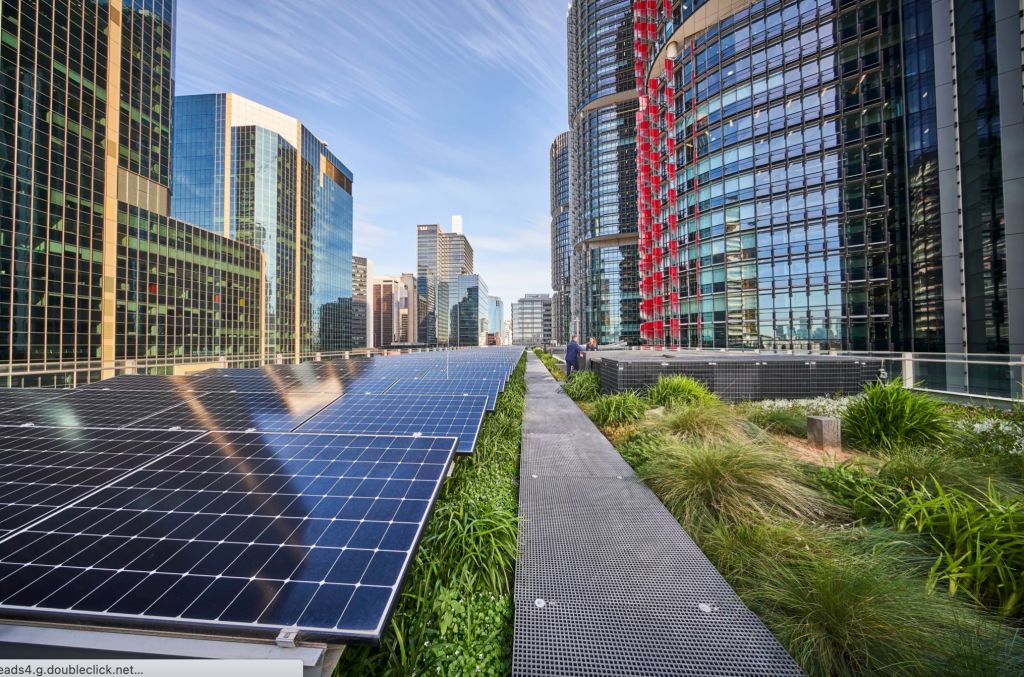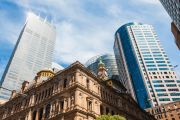
Property giants reap rewards for green credentials
A swathe of leading landlords have been awarded high rankings in the latest global sustainability benchmark assessments in recognition of the concerted push by them to be champions of change in their buildings’ green credentials.
Known as the Global Real Estate Sustainability Benchmark (GRESB), it is the global benchmark for environmental, social and governance (ESG) and covers US$6.9 trillion of real estate assets under management with around 150,000 individual assets.
To be recognised is a high achievement and signals that real assets investors and managers are steadfast in their commitment to the sustainability of their properties.
The 2022 benchmark saw GRESB’s largest ever growth in total numbers, with a 20 per cent increase in real estate participation. In Australia, the accolades were given to real estate investment trusts, unlisted managers and superannuation funds.
Under the title of ESG, building owners are being required to exercise social responsibility to not only ensure the comfort of their paying tenants, but get the assets to do as little harm to the environment as possible.
Portfolio manager at SG Hiscock, Grant Berry said ESG has become an important measure for the real estate investment trust (REIT) sector for landlords, tenants and investors.
“Because property is a tangible asset, ESG is easier to measure, and it is gaining more attention from investors,” Berry said.
“It is important to us to meet with the board members to discuss ESG matters. We have now extended this to internal ESG teams specifically, demonstrating the maturing and increased focus of ESG application by both the REITs and investors, as this would not have happened even three years ago.”
The GRESB Real Estate Assessment was founded in 2009 and covers the GRESB Standing Investments Benchmark, which considers ESG management and performance factors and is aimed at portfolios with operating buildings.
There is also the GRESB Development Benchmark, which considers ESG management and property development factors and is for portfolios with new construction and major renovation projects.
Globally, Oceania maintains the highest regional average score of 82 in the Standing Investment Benchmark and 88 in the Development Benchmark.
Green Building Council of Australia (GBCA) chief executive Davina Rooney said Australian companies continue to perform well in sustainability, and it’s pleasing to see this reflected in the global results.
“Eliminating emissions from the built environment will require a lot of heavy lifting from our entire industry. In Australia, we’re seeing a lot of big and small players in our industry take great strides toward the goal of a healthier, net-zero future,” Rooney said.
Achieving recognition by GRESB were REITs including Charter Hall, Dexus, Scentre Group, Vicinity, Goodman group, Frasers Property Industrial and Frasers Property Australia.
Lendlease and its Australian Prime Property Fund Commercial, ISPT Core Fund, Cbus Property, AMP Capital Funds Management and Growthpoint Properties Australia were also recognised by GRESB.
All chief executives responded to the GRESB recognition saying they are focused on improving the businesses environmental performance and leading the way to a net-zero future.
Berry said this commitment is not lost on investors who look at how REITs operate their buildings more efficiently and also how they look at making tangible changes such as upgrading older buildings to have higher sustainable credentials rather than just demolishing them.
“This is more positive given the embodied carbon associated with development,” Berry said.
“In the office sector as an example there has been a steady increase in “flight to quality” with ESG very much part of that criteria. Superior ESG buildings tend to run more efficiently, attract a wider pool of tenants and in doing so, drive higher occupancy and ultimately more favourable pricing by investors.”
Berry added that he has also observed ESG clause obligations for tenants embedded within leases, which highlights that institutional landlords are taking leadership and driving more positive outcomes.
Property Council of Australia chief executive Ken Morrison agreed there is growing demand from the investment community for robust disclosure of sustainability credentials from property sector organisations.
“GRESB continues to deliver these key insights and encourages investment flows to more sustainable projects and organisations,” Morrison said.
“Australian companies are once again leading overall scores and providing a blueprint for other jurisdictions to follow in the transition to a resilient and decarbonised economy. Australia cannot achieve its net zero goals without the built environment.”
Dexus chief executive, Darren Steinberg said the group’s commitment to delivering strong ESG outcomes underpins long-term performance.
“We are pleased that we have achieved year-on-year improvement in the GRESB results globally, deliveringperformance for our investors, our customers and our communities as we transition towards a low carbon economy,” Steinberg said.
Leasing agendas are also being guided by ESG requirements according to JLL head of office leasing Australia, Tim O’Connor, who said companies are increasingly aware that building amenity and the quality of office space is an important part of their employee attraction and retention strategies.
“We believe that structural vacancy is emerging across Australia’s office markets and these assets have lost relevance for active tenants,” O’Connor said.
“Most listed companies and public sector bodies have carbon emission reduction targets, and this is shaping their real estate strategies. Real estate owners have to show how their asset is on the pathway to become a net zero carbon building or risk structurally lower occupancy rates.”











